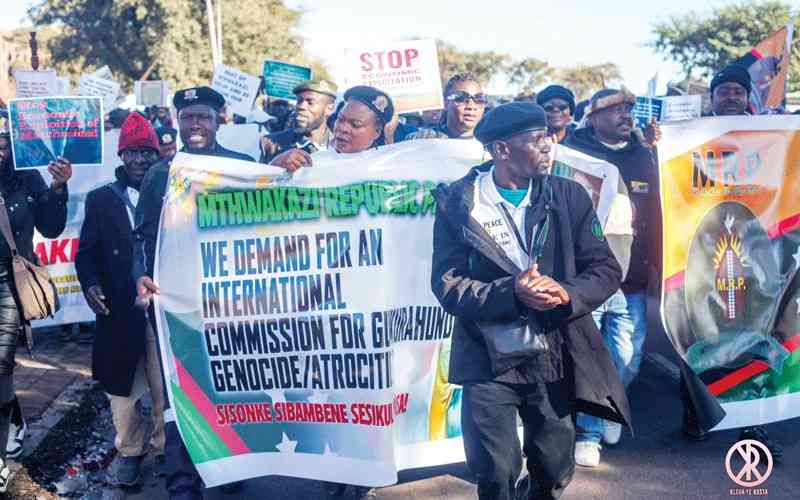
THE High Court has overturned a police order barring the Zimbabwe Congress of Trade Unions (ZCTU) from conducting a march tomorrow to commemorate the arrest and torture of about 100 of its members by the law enforcement agents during a workers’ demonstration in September 2006.
Christopher Mahove/ Perpetual Phiri
ZCTU lawyer Jeremiah Bamu confirmed the latest development yesterday, saying the order had been granted by High Court judge Justice Nicholas Mathonsi.
“The order has been granted with only one amendment for the police to provide escort, so the march will go ahead as planned and the police will not be allowed to interfere,” he said.
This follows an urgent chamber application filed by the ZCTU on Monday after police ordered the workers’ union leaders not to proceed with commemorations citing security concerns.
Ironically, police had earlier on granted permission for the commemorations to go ahead as planned.
As part of commemorations, the ZCTU says it plans to carry out a clean-up exercise at the Copacabana bus terminus in Harare and then its members will march to the labour body’s eastern region office at Globe House.
Meanwhile, ZCTU vice-chairman Ambrose Sibindi told a Press conference in Bulawayo on Tuesday that they would use today’s commemorations to show that they were ready to co-operate with the government wherever possible, so they could influence policies that are friendly to workers and investors.
- Chamisa under fire over US$120K donation
- Mavhunga puts DeMbare into Chibuku quarterfinals
- Pension funds bet on Cabora Bassa oilfields
- Councils defy govt fire tender directive
Keep Reading
“We are aware that the country is economically unstable, but let’s share the burden of economic recovery, both employees and employers,” he said . Sibindi said they would make sure that the new Cabinet ministers would be pushed to address issues of company closures in Bulawayo, considering that President Robert Mugabe had said resuscitation of industry in Bulawayo was a priority.
“The manifesto must be accompanied by (implementation of) their promises. We don’t want them to sleep in Parliament,” he said.
While deindustrialisation has affected most of the country, its effects have been devastating on Bulawayo, where a number of companies have either relocated or shut down.










